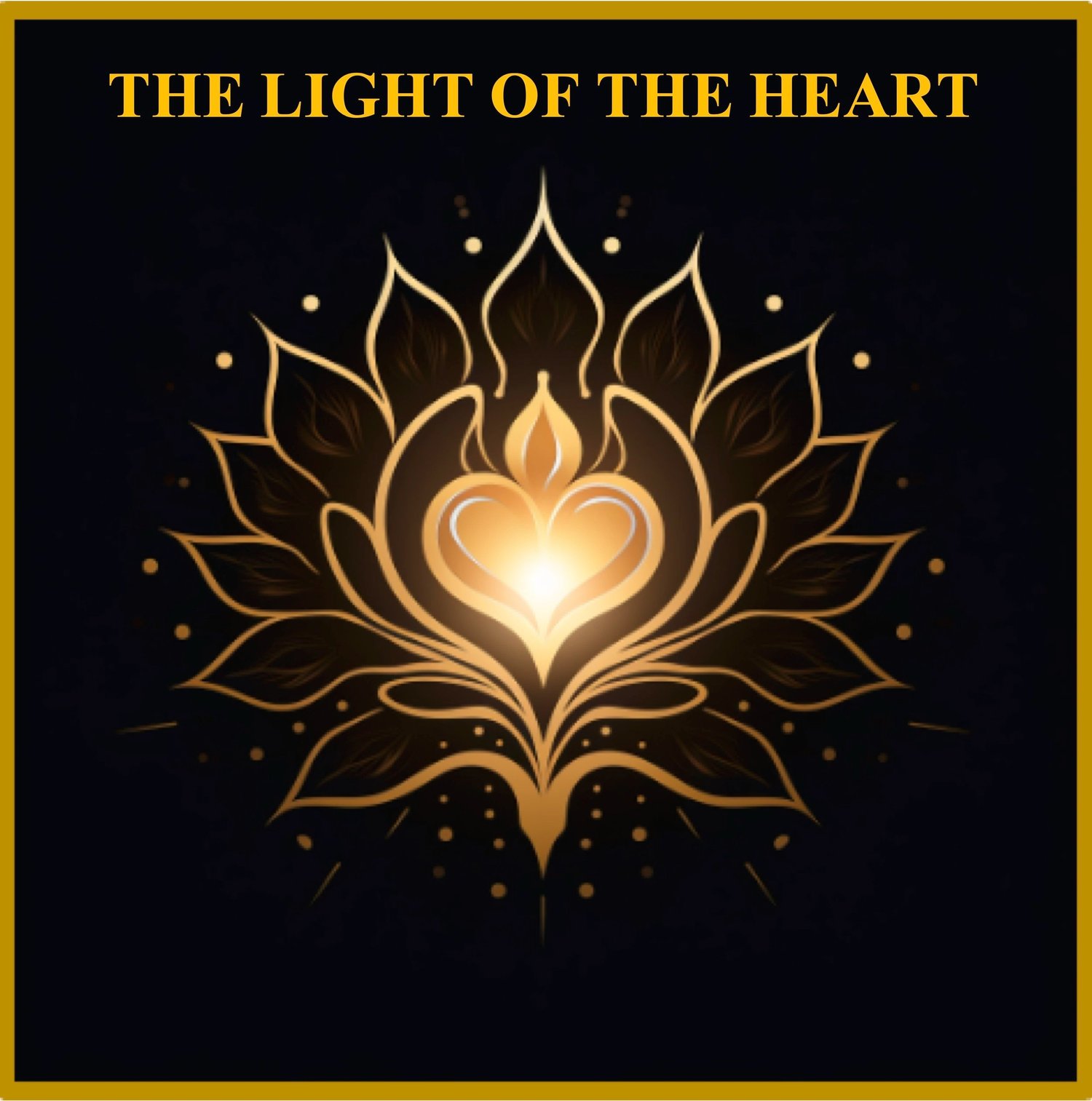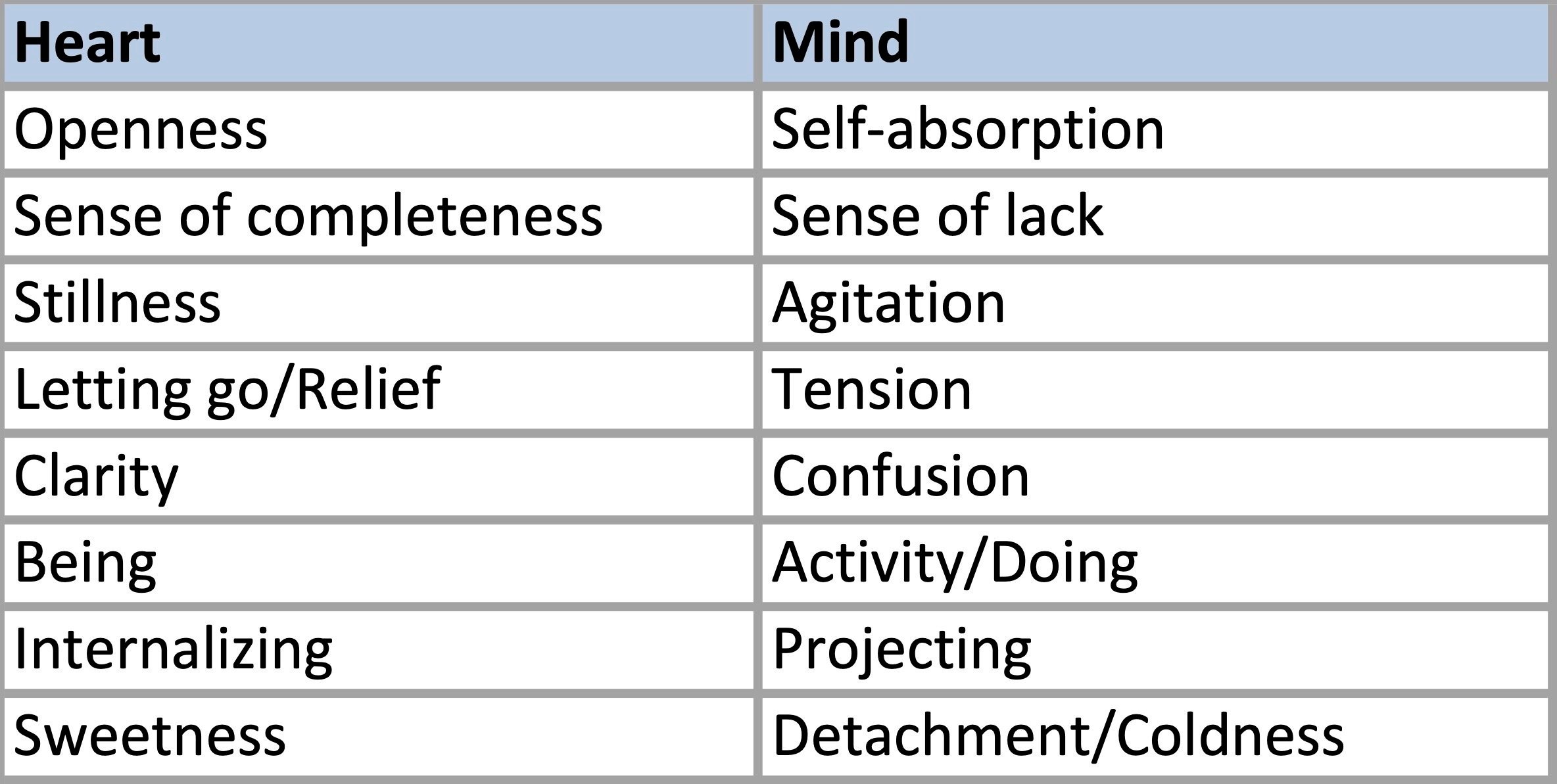Why Opening the Heart Is Fundamental in Kuṇḍalinī Practices - Part 2
Review of Part 1
We began to explore why developing the capacity to open the heart is fundamental in our practice. Then we determined that there seems to be a tug-of-war between the heart and the mind, sort of a win-lose relationship: as the heart wins, the mind loses; as the mind loses, the heart wins. We explored the mind as the instrument of the ego. We can say that the nature of the ego/mind is to define, to analyze, to separate. It is this very activity of the ego/mind that causes our suffering.
What is the heart?
In this practice, the way we find an answer inside is by learning to tune into our own heart. How do we do that? We use our breath and awareness.
Here is the first of three simple exercises that help us access our heart.
Exercise 1:
1. Close your eyes. Take a few regular breaths.
2. Listen to the breath, explore where it begins and where it ends. Notice the beginning and end of the inhalation. Notice the beginning and end of the exhalation. Keep your awareness on the cycle of the breath, simply listen. Do that for a few minutes.
3. Now, move your awareness to the middle of the chest, where the heart energy center (chakra) is. Keep your awareness there.
4. Allow the inhalation to open that center, feel the lightness.
5. As you exhale, relax deeply. Notice how we tend to have superficial exhalations, we tend to hold onto tension in our bodies. As you exhale, each time exhale deeper.
6. Notice that as you exhale and you let go deeper, the openness in the heart becomes bigger. Both the inhalation and exhalation create and expand the openness.
7. As you keep your awareness in the heart, whatever arises: thoughts, emotions, physical sensations, sounds, smells etc, gently let them go into the heart. Do that for a few minutes.
8. As you open your eyes, keep your center in your heart, stay centered there.
9. Do this exercise during your sitting meditations and also in your daily life with your eyes open.
As we do this simple yet powerful exercise, over time we might have some valuable insights. By focusing on the heart, the mind seems to slow down, we become more quiet and still. Put differently, the more heart, the less mind. As we lose our awareness of our heart, we will likely experience the reverse, less heart means more mind. That is OK. The good news is that we are beginning to feel a new place in ourselves, an alternative to the mind. It does seem like an either/or equation, right?
The answer is yes, however with a "but." Yes, the heart and the mind seem to have a mutually exclusive relationship, but this is more so in the beginning of our practice. In the beginning, we learn over and over again to first find our heart. As we find it over and over again, using our awareness and breath, we nourish that opening. The time that we spend in the heart over time increases. The heart becomes more and more familiar. While that is happening, as we stay centered in the heart, it feels like thoughts, feelings, sensations come from somewhere else. There seems to be a feeling of, "This is my heart" and then, "There is my mind, there is everything else." That experience is an important first step in our spiritual development.
Heart versus Mind
In my own experience, being in the heart helps me understand the nature of the mind better. From the quiet of the heart I can have a clearer perspective on the mind. My life experience before learning to access the heart, as my teacher Swami Khecaranatha (Nathaji) would say, had a floor and a ceiling. The openness of the heart expands that band of experience, I can "see" more, understand better the contrast between the mind and the heart. For me, there seems to be this contrast.
It's an incredible contrast, isn't it? In my experience, as my band of experience expands with the heart, when I catch myself in my mind, I experience a sort of shock, the realization of the vast difference of experience between the heart and the mind. That shock helps me go back to the heart, it just feels so much better being in the heart! That realization happens in the intellect, which in nondual cosmology, sits above the ego and mind. The intellect does not refer to the sense of being intellectually smart, but a place in ourselves that has enough lift, enough perspective and enough discriminating awareness to make a choice from a place of clarity to open, even when the mind pulls us to close.
As my practice has deepened over the years, when the mind becomes active or takes over in a very forceful way, when a deep thought construct wrapped with powerful emotions takes over, I would follow Rudi's advice: "Take your mind and stick it in your heart." This exercise helps digest and melt deep patterns, in the heart. Another technique we use is creating a flow in our inner mechanism - on that teaching, I will do a separate blog post.


